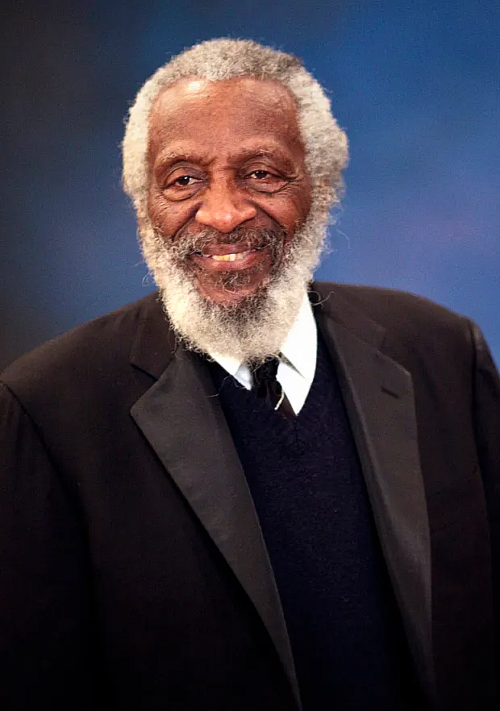Sometimes an exceptional messenger is sent to earth for a special mission: to awaken souls of the importance of expanding their consciousness, to receive groundbreaking information about life’s hidden truths, to better understand our present reality, and to view the world from a more profound perspective. Such a thought-provoking and brilliant individual was none other than the satiric comedian, civil rights activist, health advocate, and author, Dick Gregory. In studying his life’s work, I gained important insight on how he fashioned a powerful place in this world for himself.
Richard Claxton Gregory was born on October 12, 1932, in St. Louis, Missouri. He lived in dire poverty and was raised by a single mother who worked grueling hours. Gregory learned how to hustle early on. He shined shoes and worked odd jobs to help support himself and five siblings. He also learned to use his wit to handle neighborhood bullies who picked on him because he was skinny and the poorest kid on the block.
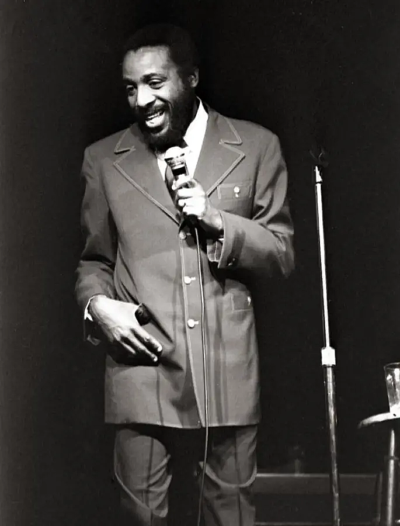
Gregory’s high school years were stellar. He was a track star and class president by the time he graduated in 1952. Southern Illinois University accepted Gregory and even provided him with an athletic scholarship, but he was drafted into the U.S. Army in 1954. Upon his discharge in 1956, he re-enrolled at Southern but did not earn a degree.
In the mid-1950s Gregory relocated to Chicago, where he worked an array of day jobs and performed his comedy routines at nightclubs. He eventually opened his own club, the Apex, in Robbins, Illinois, in 1958. A year later, he married Lillian Smith, and they had ten children.
On stage, Gregory developed a reputation for his deft delivery of sarcastic comedic routines that crossed over. The comedian’s satirical observations often ridiculed bigotry. For me, Gregory was the epitome of what it means to ‘speak truth to power’–it’s what his life was all about. And just like the other great leaders of the civil rights movement, Gregory was courageous and stood for what was right, confronting oppressors, and unafraid to speak out on injustices.
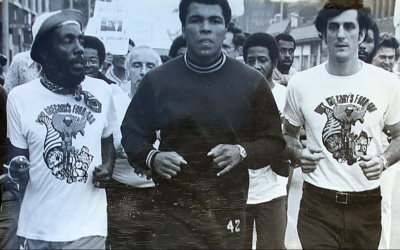
By the 60s, Gregory was ten toes down in the civil rights movement of the times, becoming an impassioned activist who participated in marches and rallies. While fighting for justice and change, he held on to the vision of a better world for everyone. Gregory even became known for researching, then dispersing, important information that might not have been known about.
Through his books and speeches, Gregory imparted a treasure trove of knowledge and information; he planted seeds in countless minds throughout his life. He especially wanted people to remember those unsung heroes and sheroes whose names we may not know. Like Claudette Colvin, a 15-year-old who on March 2, 1955 refused to give up her seat to a white woman on a segregated bus. She was arrested nine months before Rosa Parks’ arrest that sparked the Montgomery Bus Boycott.
Through Gregory’s work, I came to realize that he truly understood human nature and that folks are hungry for information that they might not obtain from the press, because he believed it was all part of the system. One of the facts that Gregory also most often emphasized was that “The two most powerful forces on this earth are the Black woman and the black church” and explains why in his books and lectures.
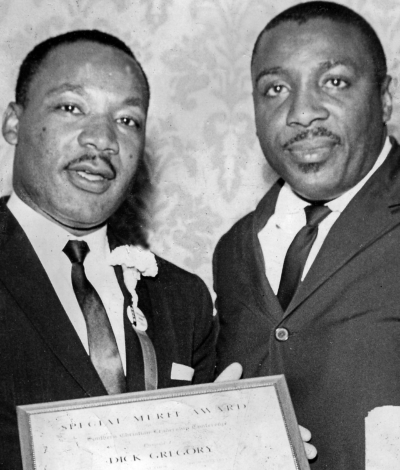
What I also found moving was the high regard and special bond he shared with his amazing wife, ‘Lil.’ She was always there for him and understood, how his work was something he was meant to do. “So, when people ask me about being away from Lil… they don’t know her at all. Yes, we were married to each other but we were also married to the movement. Lillian Gregory didn’t march as Dick Gregory’s wife. She is a woman of the movement… so I am never really away from her.”
There is a wealth of remarkable information and stories to choose from his 1964 book nigger: An Autobiography by Dick Gregory but I will share a few profound gems that for me were compelling. The opening page of his book states the following:
“This is a revolution. It started long before I came into it, and I may die before it’s over, but we’ll bust this thing and cut out this cancer. America will be as strong and beautiful as it should be, for black folks and white folks. We’ll all be free then, free from a system that makes a man less than a man, that teaches hate and fear and ignorance.”
The following are some of his comments taken from a couple of his books and interviews:
Medgar Evers
I was intrigued by the many people he met and those who had a great influence on him like Medgar Evers. Medgar got Gregory involved in the civil rights movement. He credits Medgar as the man who changed his life and stated in The Last Mile: Conversations with Dick Gregory by Sheila P. Moses “There is one person or one incident that will change you forever. Medgar was that person.” He considered Medgar to be his brother and friend, and states in Defining Moments in Black History, “…there was nobody like him. He was almost in a separate category of human being: so kind, humble, and so dedicated to the movement and to his people.”
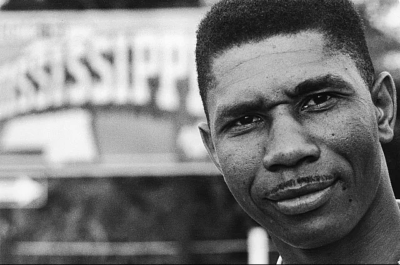
I was moved by what he shared about Medgar and how their bond changed him. Medgar’s murder in 1963 removed all of Gregory’s fears. He says there was a time when his comedy gigs came first but this changed after Medgar’s death. After the passing of his dear friend, he scheduled performances around plans involving the movement. In The Last Mile, Gregory says Medgar “…lit a fire inside of me that will never go out.”
1963 March on Washington for Jobs and Freedom
Gregory describes the beauty of the 1963 March on Washington for Jobs and Freedom and offers a brilliant perspective that I’ve never read before. An estimated 250,000 participants converged on the nation’s capital, making it the most significant protest in American history. The march drew extensive media coverage and public attention. This visibility helped to raise awareness about the issues of racial segregation, discrimination, and civil rights violations that African Americans were facing.
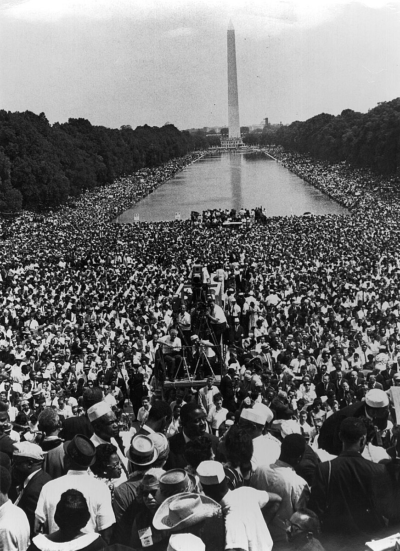
Unfortunately, the momentum of this historical march was overshadowed and short-lived as “darkness came again” with the tragic 16th Street Baptist Church bombing. Gregory stated in The Last Mile, “…there was very little joy after the March on Washington because two weeks later four little girls were dead.” According to Gregory, he believed, “Two evils killed those little girls. One, white folks were mad about them opening the church for our meetings. The second one had nothing to do with Birmingham or any church in America. White folks were angry about the success of the March on Washington that happened on August 28, 1963.” He went on to say, “We really didn’t know the full story of what happened to the girls and their families until Spike Lee released the documentary Four Little Girls.” He said, “Spike did a damn good job exposing what happened in Birmingham.”
Bayard Rustin
In The Last Mile, Gregory spoke highly of Rustin and the brilliant work he did organizing the historic March on Washington. Gregory believed that one could only imagine the great contributions Rustin would have made if obstacles like racism had not been placed in his path. According to Gregory, “Rustin was the mastermind behind scheduling everyone who spoke that day. Not just the speakers but every meeting, every step taken, until we went home that night.”
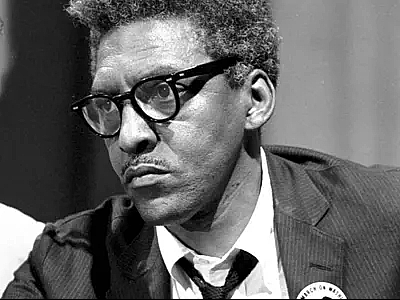
Taking a stand at a segregated prison
In his intriguing autobiography, Gregory tells of his experience doing benefit shows at prisons. The one that frightened him the most was an incident that took place at the Maryland State Penitentiary. Even though it was the 60s, he had no idea the prison was segregated. Gregory always made sure nightclub owners advertised in “Negro” newspapers and even inserted a non-segregation clause in his contract. Even though he encountered a frightening experience at the penitentiary, he still managed to firmly and courageously stand his ground.
A priest invited him to speak at the prison but failed to inform him that the audience would be segregated. The audiences’ white inmates were in the middle of the room and the Blacks were seated on the side. Gregory refused to perform unless the audience integrated. Remembering the event, he stated in The Last Mile, “I had never worked in front of a segregated audience and I wouldn’t start now.” The priest warned Gregory that the prisoners had been waiting to see his show all week and if he didn’t perform, a riot would break out.
When Gregory again insisted on an integrated audience, the priest summoned the warden. The warden pleaded with entertainer to perform, promising that the next show would be integrated. Still Gregory refused, saying: “Okay, man, you say if you try to integrate them there’ll be a riot, and if I don’t go on there’ll be a riot. Tell you what. Either I can walk out the back door, and never give it a second thought or I can go out there and try to integrate them. That way, at least I’ll be here to get killed with you.” Even in the face of danger, Gregory trusted his instincts, and following his inner guidance, he was able to have his demands met. Suffice it to say, Gregory’s performance was a smash hit with the tough crowd.
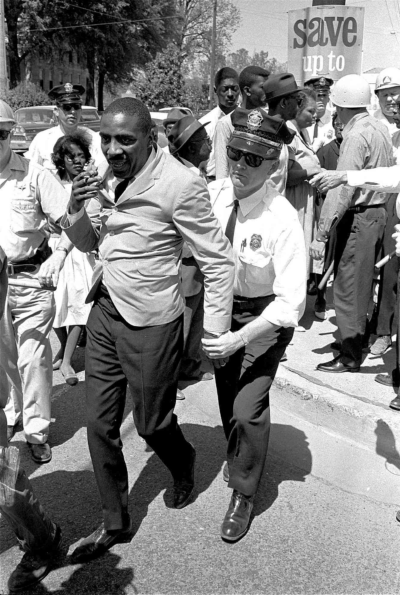
The Bahamian Diet
Gregory once ate his way to 350 pounds, chain smoked, and drank a fifth of Scotch a day, until he was converted to the ways of good health. The health profit developed The Bahamian Diet in the mid 80s to help African Americans live healthier and longer lives. The diet was actually a vegetarian food program along with supplements that were full of a variety of vegan nutritional items to help bring on weight loss. Gregory who was a zealous faster would not eat for long periods in support of various causes that were near and dear to his heart. The Last Mile mentions that through Gregory’s nutritional guidance, he was also able to help those folks throughout the world who went on hunger strikes as a way to “advance their political causes without risking their lives.”
Two inspirational quotes by Dick Gregory
“Every time we marched, ran, or went to jail, it made a difference to somebody or some cause. I was, and I remain, in a war that will never be over because I don’t believe that racism will ever be over. How can something end that the people in power don’t believe is wrong?”
“Money is not power, education is not power, but information is power.”
Dick Gregory was a man who truly loved his people, and like many great leaders, he made tremendous sacrifices for the betterment of his race. He believed in himself and worked arduously. He became a powerful and influential force especially during a time critical time in our history. Gregory fed his mind, and fueled his body, demonstrating the importance of arming oneself with knowledge and fortitude. The man truly held on to the vision of a better world for us all. This is what I gained from studying the work of this brilliant soldier. Gregory left behind an unforgettable legacy that will be cherished for generations to come.
Dick Gregory will definitely never be forgotten!


